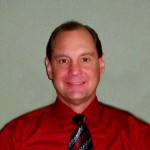
TexasLending.com
Over the past decade, TexasLending.com has seen the impact that growth has on a business. Currently processing thousands of loans each year, the Dallas-Fort Worth-based mortgage lender makes every effort to ensure each customer experience is a fulfilling one. But even when a business like TexasLending.com takes extreme measures to please every client, the occasional unhappy customer is unavoidable.
The first thing a business should do is work directly with the customer during every step of a transaction to avoid an unhappy customer at the end, TexasLending.com advises. TexasLending.com has found that having a customer satisfaction survey available can sometimes pinpoint a customer’s dissatisfaction. Businesses with customer satisfaction surveys should carefully review each survey and address any problems with the customer directly. TexasLending.com finds that in many cases, this can resolve the issue.
Unfortunately, says the team at TexasLending.com, the problem isn’t always something within a company’s control. Sometimes, TexasLending.com customers have been dissatisfied with a title company or had issues with the loan process itself that are outside of TexasLending.com ’s control. By carefully explaining the entire process with a customer, TexasLending.com can give a customer realistic expectations about closing his or her loan. In some cases, this has prevented a customer from developing negative feelings due to misunderstandings.
According to TexasLending.com, however, statistics have shown that most dissatisfied customers never say a word to the company. Instead, those customers complain to friends and family about the experience. And, because of the easy access of social media sites, blogs, and online review sites, TexasLending.com reports that online “word of mouth” can have a much more powerful impact, making it more important than ever to try to avoid garnering negative reviews before they’re even posted.
Once a negative review is posted online, TexasLending.com says that mediation can be tricky. Some businesses have had luck in directly contacting the customer to make amends, but this can also backfire. In fact, TexasLending.com has heard of cases where this contact only further incensed the customer, causing more damage. Still, offering a discount on future purchases or a partial refund can sometimes be enough to cause a customer to reconsider. Each circumstance needs to be resolved on its own merits.
To stay on top of your business’ online reputation, TexasLending.com recommends regular searches for mention of your company name. Also, having an active presence on social media sites can encourage customers to post negative commentary directly to you, rather than on their own pages, over which you have no control. Monitor Twitter for mentions of your business name and watch your Facebook fan page often. Be sure to regularly interact with those who comment to your post, TexasLending.com advises. This will establish your business as one that cares about its customers’ well-being and satisfaction, leaving customers with the feeling that they can come directly to you if they ever have a problem.
TexasLending.com emphasizes that the vast majority of its customers give rave reviews about its services. So while an occasional negative review may find its way online, for businesses, the key is to focus on the great reviews coming from the majority of customers and simply continue to try to give the best customer service possible.
For more information, visit Texas Lending online at www.texaslending.com.
 TexasLending.com
TexasLending.com
4100 Alpha Rd.
Dallas, TX 75244
NMLS# 137773






